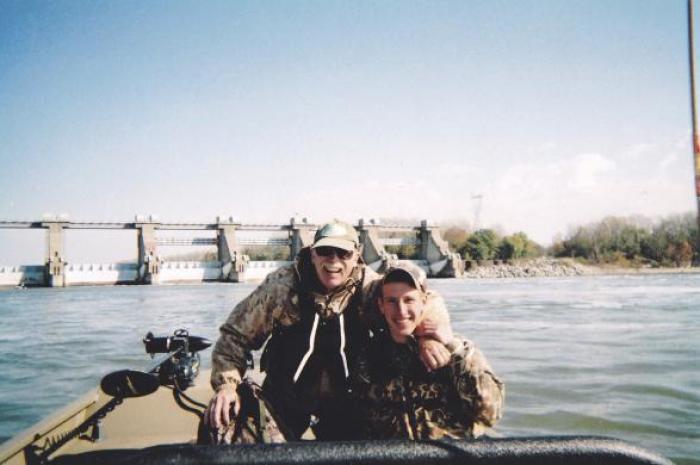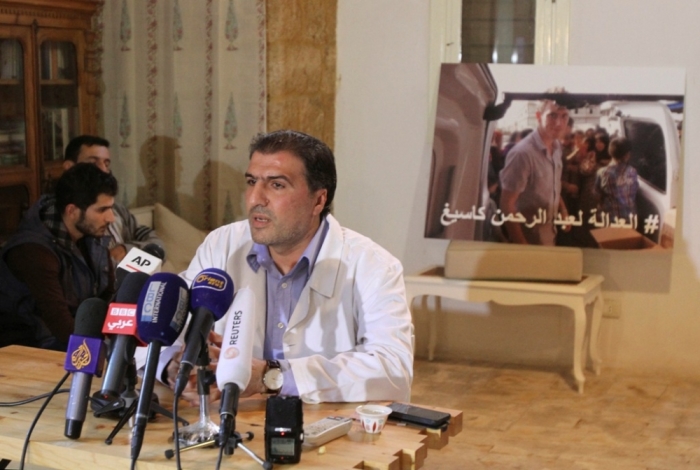Who Is Peter Kassig? American Beheaded by ISIS Was Searching for Purpose in Life, Went to Middle East After Heartbreak

Peter Kassig, whom ISIS claimed Sunday to have beheaded and who took the Muslim name Abdel Rahman after his conversion, was struggling to find meaning and purpose in life, which compelled him to go to the Middle East to offer medical help to Syrian refugees, especially after fighting as a U.S. soldier in Iraq and having a divorce.
Kassig, 26, an Indianapolis native, was working as a humanitarian aid worker in Syria when he was captured in the ISIS stronghold Deir Ezzour in eastern Syria on Oct. 1, 2013, according to a Facebook page operated by Kassig's family.
He was traveling in an ambulance to deliver medical supplies.
"We are heartbroken to learn that our son, Abdul-Rahman Peter Kassig, has lost his life as a result of his love for the Syrian people and his desire to ease their suffering," Ed and Paula Kassig, the parents of Kassig, said in a statement Sunday, the day the Islamic State, or ISIS, released the video of his beheading.
In a June 2012 interview with CNN, Kassig explained what led him to decide to take the risky decision of going to the troubled region to help refugees.

He joined the U.S. Army Rangers in 2006 and was deployed to Iraq in 2007. But he was honorably discharged for medical reasons soon thereafter.
Back in the United States, he began to study political science and train for 1500-meter runs. But he wasn't happy. "I was going to school with kids who look the same, were the same age as me, but we weren't the same," he said. "I wanted more of a challenge, a sense of purpose."
In 2010, Kassig began his certification as an emergency medical technician. By the next two years, he had fallen in love, gotten married and divorced.
"I needed to make a drastic decision. It was a huge identity thing; it was time to re-evaluate. I needed a game changer," he said.
That's when he decided to go to Beirut, the capital of Lebanon.
"We each get one life and that's it. We get one shot at this and we don't get any do-overs, and for me, it was time to put up or shut up," he added. "The way I saw it, I didn't have a choice. This is what I was put here to do. I guess I am just a hopeless romantic, and I am an idealist, and I believe in hopeless causes."
In another interview, with Time magazine, in January 2013, Kassig once again said, "This work is really the only thing that I have found that gives my life both meaning and direction."
Kassig found a calling in Lebanon, according to colleagues, who spoke to the Los Angeles Times.
He linked up with a humanitarian network in Lebanon, which has a large population of displaced and wounded from the Syrian conflict. Kassig was in Lebanon from the spring of 2012 until sometime in the summer of 2013, when he left for Syria via Turkey, according to Pando.com.
Ahmad Iskandar, who grew up and lives in the Burj al Barajneh Palestinian camp in south Beirut, initially helped Kassig in his work with Syrian and Palestinian refugees.
"At first, people in the camp were uncomfortable about this American guy — like 'who is he and why is he here?' I would always go with him and translate," Iskandar was quoted as saying, "but after about a month, they started to realize that he carried many things in his heart for the refugees and the people. They looked at him as a good person who left everything behind to come help people."
It was during the time in the Palestinian camp that Kassig began to show interest in Islam, Iskandar said.
"One guy in particular, who is a Palestinian and a sheikh who supports Islamist Jihad [the Palestinian Islamist group exiled to Lebanon in 1988 and later headquartered in Damascus], showed [Kassig] how to pray, took him to eat with his family, brought him to the mosque. At one point he stopped drinking, stopped smoking. He was always asking what is halal, saying 'Alhamdulillah' (praise God)."
On Nov. 8, Kassig's friends in Tripoli, Lebanon, held a press conference, urging ISIS not to kill him.
"Islam does not allow Muslim to kill Muslim, especially if the Muslim in question has done good work," Naharnet.com quoted Firas Agha, a Syrian refugee living in Tripoli who shared an apartment with Kassig, as saying.
Kassig "was a very enthusiastic young man, so much that he would help refugees out of his own pocket," Agha added.
Kassig founded a nongovernmental aid group, Special Emergency Response and Assistance, and later moved operations to Turkey. It was funded mostly by private donors in the United States, especially Kassig's friends and relatives.
ISIS thought Kassig was a spy or with the CIA, "just because he is an American," a fellow aid worker was quoted as saying. "But it's not true. ... He used to say that not every American supports the policies of the American government."
Kassig's friends from Syria say he would rarely talk about his time in the Army. Some of them felt the bloodshed he had witnessed in Iraq could have led him to try to make up for it by helping refugees. He never thought that conflict was a solution.
"Fed by a strong desire to use his life to save the lives of others, Abdul-Rahman was drawn to the camps that are filled with displaced families and to understaffed hospitals inside Syria," Kassig's family said in the statement Sunday. "We know he found his home amongst the Syrian people, and he hurt when they were hurting."




























